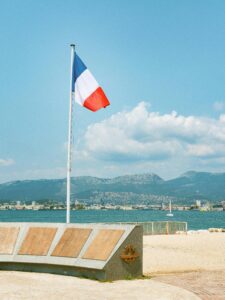Tagged: “peace”
A Hug for a Murderer?

Photo by Mohan Nannapaneni, Pexels.com
As reported in El Paso Matters (https://elpasomatters.org/2025/04/22/victims-sister-hugs-walmart-gunman-patrick-crusius-el-paso/) on April 23, 2025, Yolanda Tinajero lost her brother to murder by Patrick Crusius in 2019. When allowed to speak in court, she faced Mr. Crusius and said, “I feel in my heart to hug you very tight so you could feel my forgiveness, especially my loss. But I know it’s not allowed. I want you to see and feel all of us who have been impacted by your actions that has brought us all closer with God’s love, which shows you that this great city of El Paso is a very forgiving place to dwell in.” When the judge allowed it, she hugged the defendant as the judge wept.
Dr. Enright featured on radio interview and podcast this summer

Dr. Robert Enright
Two recent media interviews on forgiveness by Robert Enright are the following:
Live interview on the Voice of Islam Radio, London, United Kingdom, on the topic of forgiveness, anger, and humility, July 8, 2025.
Interview with Dr. Buck Joffrey and Nikki Leigh, Longevity Junky podcast, on the idea of forgiveness for health, June 25, 2025.
Dr. Enright’s forgiveness presentations encourage communities in Greece and Israel

Dr. Robert Enright
In May and June, 2025, Robert Enright presented two talks on forgiveness, one in Greece and one in Israel, both by Zoom:
Enright, R.D. (2025, May 7). Forgiveness for the common good in communities. Presented to educators in Greece through Zoom.
Enright, R.D. (2025, June 12). Forgiveness for emotional healing. Presented to researchers and research participants in Israel through Zoom.
July 17 Marks a Day of Forgiveness in the Face of Cruel Execution Over 230 Years Ago

Photo by Studio Saiz, Pexels.com
On July 17, 1794, and as part of the French Revolution, 16 Carmelite nuns were martyred at the guillotine in Paris. As she was facing death, one of the sisters, Sister Mary of Jesus Crucified, proclaimed, “I forgive you, my friends. I forgive you with all that longing of heart with which I would that God forgive me!” All of the sisters now are known as the Martyrs of Compiègne. Pope St. Pius X beatified all of these heroic sisters on May 27, 1906.
Dr. Enright’s essay on how forgiveness can be tricky featured on Psychology Today website

Dr. Robert Enright
On July 22, 2025, Robert Enright published an essay on the Psychology Today website:
5 Expressions of Forgiveness That Can Trick Even the Forgiver, July 22, 2025
The essay was designated as an Essential Read and featured on the front page of the website, subsequently distributed to other media outlets.



